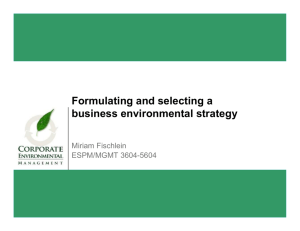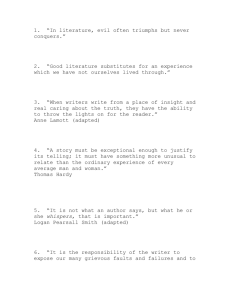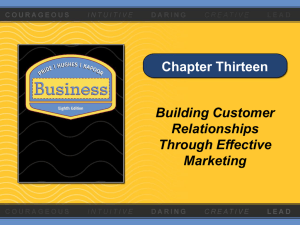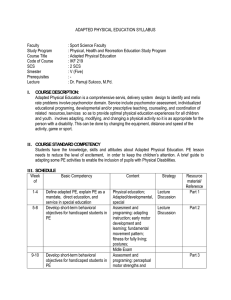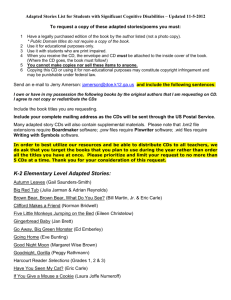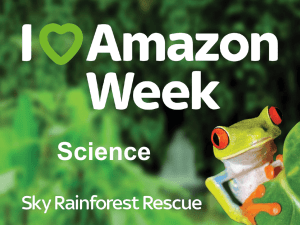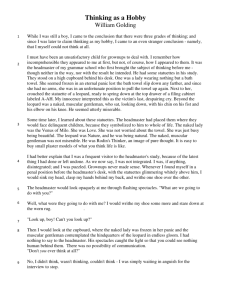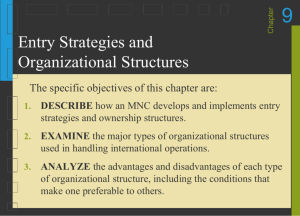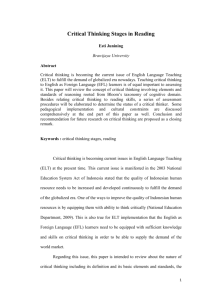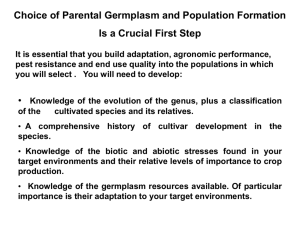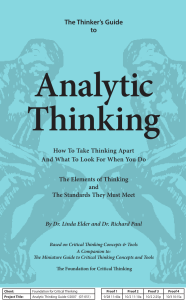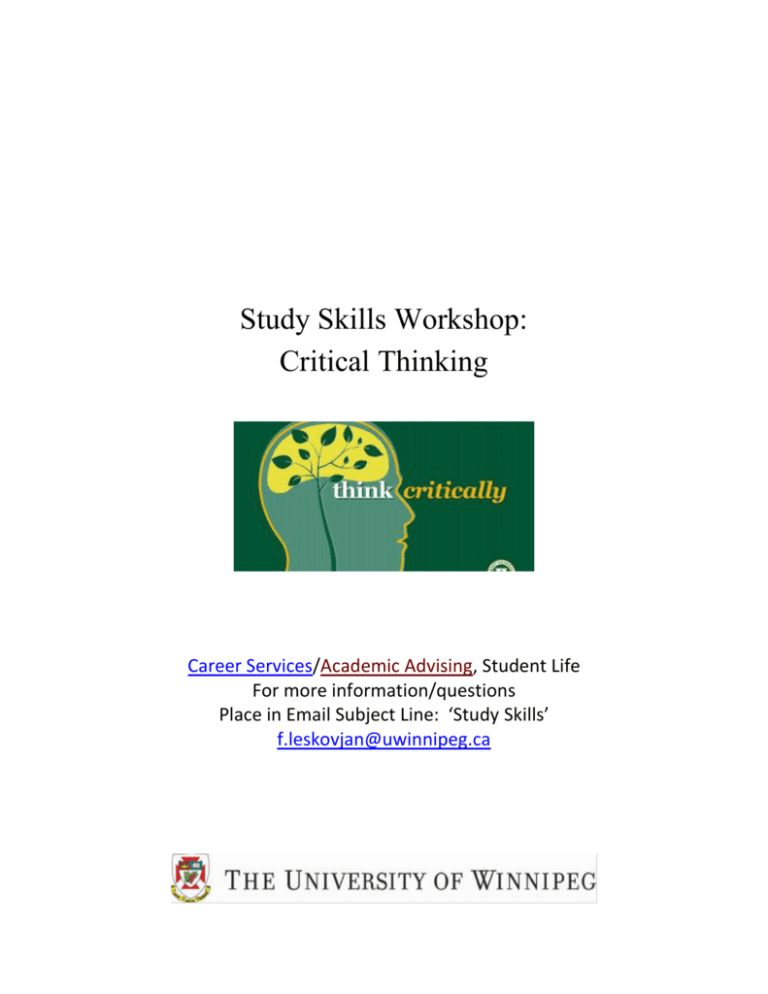
Study Skills Workshop:
Critical Thinking
Career Services/Academic Advising, Student Life
For more information/questions
Place in Email Subject Line: ‘Study Skills’
f.leskovjan@uwinnipeg.ca
What is critical thinking?
-
thorough thinking; the willingness to change our opinion
Critical thinking means…
-
sorting out conflicting claims; weighing the evidence for them; letting go of
personal biases; arriving at reasonable views; being willing to change views
Critical thinking can be…
-
Convergent thinking: Narrowing-down from many possible viewpoints
Divergent (or creative) thinking: Generating as many possible options as you can
Divergent thinking provides a basis for convergent thinking.
Becoming a Critical Thinker
-
Be willing to say “I don’t know”
Practice tolerance
Watch for hot spots
Understand before criticizing
Accept your changing perspectives
Becoming a Critical Thinker
-
Define your terms
Consider the source
Seek out alternative views
Ask questions
Look for at least three answers
Combine perspectives
Assumptions:
-
Unconscious
Generalizations
Unsupported personal opinions
Prejudice thrives on assumptions; assertions & opinions flow from our
assumptions: know what your assumptions are.
Common Mistakes in Logic:
-
Jumping to conclusions
Attacking the person
Appealing to an “authority”
Pointing to a false cause
Thinking in “all-or-nothing” terms
Basing arguments on emotion
Adapted from: Becoming a Master Student. D Ellis. Houghton Mifflin. 2006
2
Critical Thinking: Attitudes
Truth-seeking: following an idea even though it questions your assumptions or
previously held views about something
Open-minded: being interested in others views, open to changing yours, treating
others’ views with respect
Analytical: taking a stand on an issue, commitment to take action, faith in your own
argument/conclusion
Systematic: desire to hear evidence to support each viewpoint
Self-confident: even if confused the first time, not giving up – belief in ability to
understand
Inquisitive: desire to learn more
Mature: ability to suspend judgment
Adapted from: Becoming a Master Student. D Ellis. Houghton Mifflin. 2006
3
Critical Thinking: Questions
1. What is the author’s fundamental purpose?
E.g. to inform, persuade, analyze…….
2. What is the key question the author is trying to answer?
3. What information does the author use to answer his/her question(s)?
4. What is the most basic concept in the author’s question?
5. What assumptions is the author using in his/her reasoning?
6. What is the author’s point of view with respect to the issue?
7. What are the author’s most fundamental inferences or conclusions?
8. What are the implications of the author’s reasoning (if she/he is correct)?
Adapted from: The Critical Thinking Community
4
Critical Thinking: Questions
1. What are the issue and the conclusion?
a. Descriptive issues are those that raise question about the accuracy of
descriptions of the past, present, or future.
b. Prescriptive questions are those that raise questions about what we should
do or what is right or wrong, good or bad.
2. What are the reasons?
3. What words or phrased are ambiguous?
4. What are the value conflicts and assumptions?
5. What are the descriptive assumptions?
6. Are there any fallacies in the reasoning?
7. How good is the evidence: intuition, personal experience, testimonials, and
appeals to authority?
8. How good is the evidence: personal observation, research studies, case examples,
and analogies?
9. Are there rival causes?
10. Are the statistics deceptive?
11. What significant information is omitted?
12. What reasonable conclusions are possible?
Adapted from: Asking the Right Questions: A Guide to Critical Thinking, N Browne and
S Keeley. Pearson Prentice Hall. 2007
Checkout UBC Learning Commons for some useful tips and exercises


